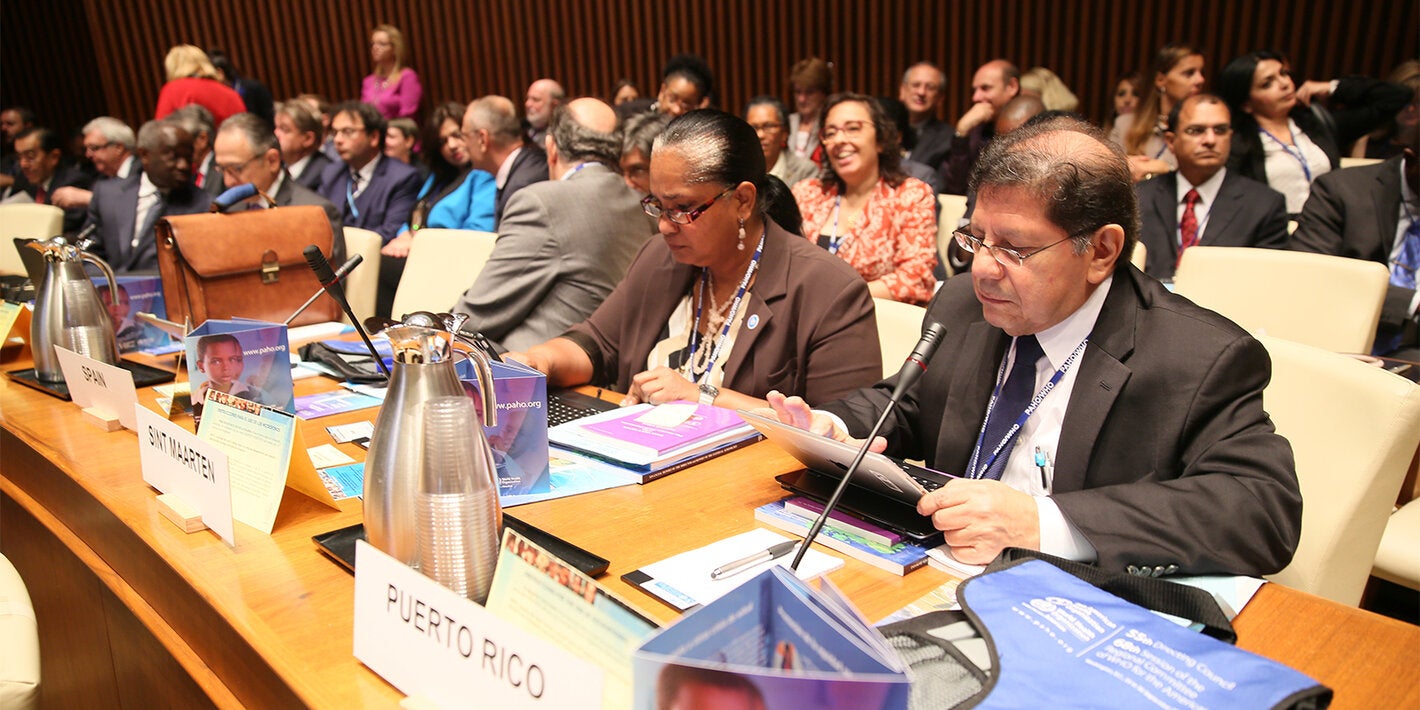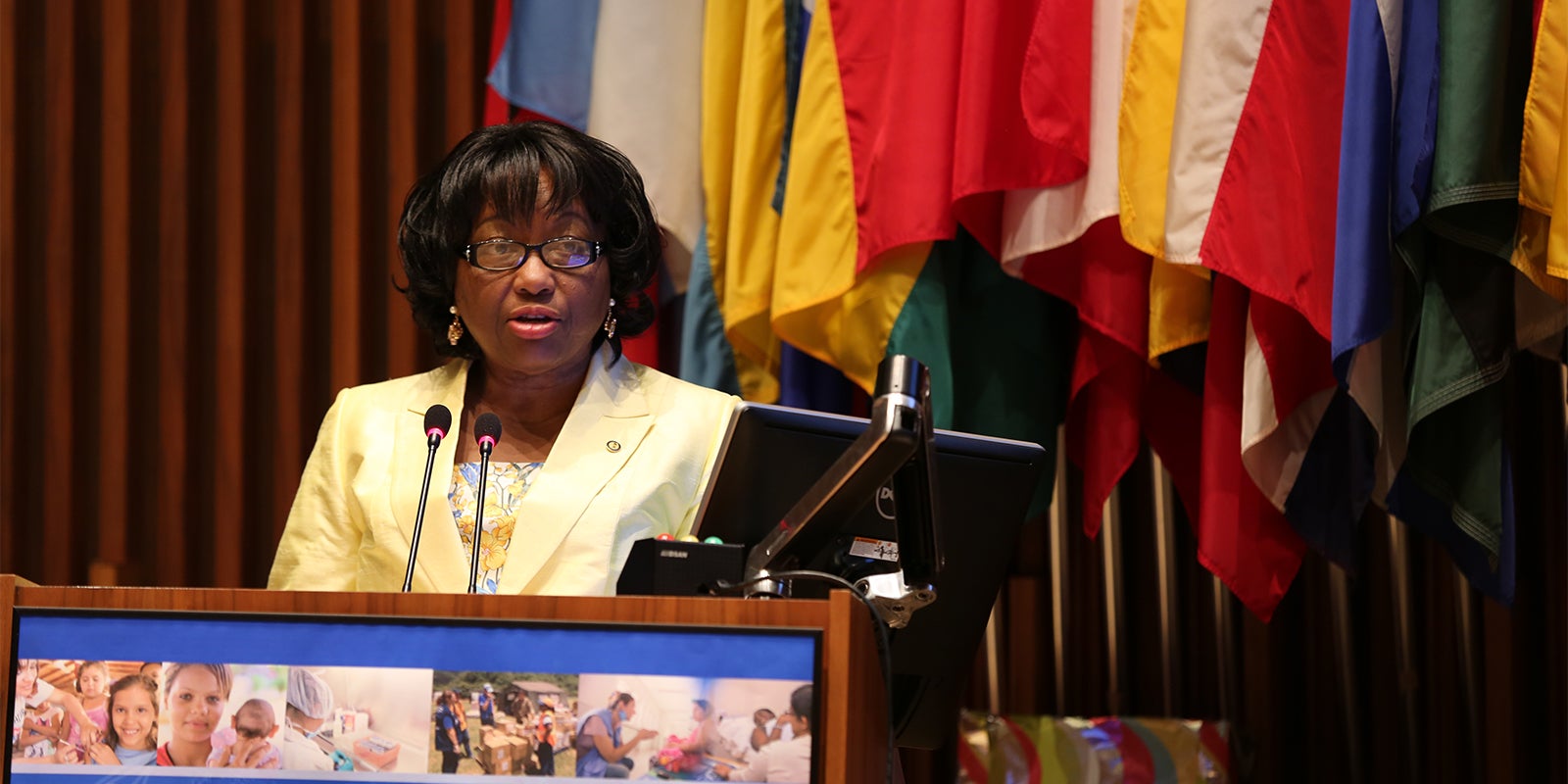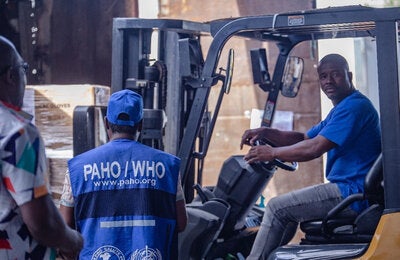
Washington, D.C., 30 September 2016 (PAHO/WHO) - The Directing Council of the Pan American Health Organization (PAHO) ended today with the approval of a series of new strategies and plans of action for eliminating HIV/AIDS, malaria and neglected infectious diseases and responding more effectively to Zika and other arboviruses.
Ministers of Health also approved measures for improving access to high-cost medicines; protecting the health of migrants; and strengthening health systems' abilities to cope with disasters and other health emergencies.
PAHO Director Carissa F. Etienne congratulated the Organization's Member States for regional progress in health, which she said was the result of "Pan American solidarity" and collective efforts by the countries to address common health challenges.
This week, the Americas became the first region in the world to be certified as having eliminated endemic transmission of measles after 22 years of work, an achievement Etienne said would be "recorded in the annals of public health as historic."
"In this monumental achievement we must recognize the unwavering political will and financial contributions of the governments, partners and donors together with the dedicated and steadfast work of national health staff in all of our countries and territories in bringing the benefits of vaccination to all peoples in the Americas," said Etienne.
Ministers of health and delegates from PAHO's 35 Member States adopted the following strategies and plans of action:
- A plan to accelerate efforts to fight HIV and sexually transmitted infections between now and 2020 so as to eliminate them as public health problems by the year 2030.
- A plan to intensify malaria elimination efforts in the Americas over the next four years.
- A strategy for integrated control of arboviruses, a group of viruses transmitted by mosquitoes that includes Zika, dengue, chikungunya and yellow fever.
- A new framework for integrated efforts to make health systems more resilient in disasters and health emergencies.
- A plan of action to eliminate eight neglected infectious diseases and to prevent, control and reduce the burden of five others over the next six years.
- A framework for improving access to and use of high-cost medicines and health technologies, to improve care and ensure the sustainability of health systems.
- A resolution calling for health policies and programs addressing health inequities that affect .
"Looking ahead, we must prepare our governments and peoples to effectively respond both to the rapid ageing of our populations as well as to the massive population expansion that is anticipated over the next few decades," said Etienne. "We must work together with each other and across all of government and with all sectors of society in order to lay a strong foundation for the achievement of the Sustainable Development Goals" by 2030.
Also during the week, PAHO celebrated the 40th anniversary of PAHO's disasters program and the 50th anniversary of the Expanded Textbook and Instructional Materials Program (PALTEX), which has facilitated access to medical textbooks for students and health professionals in 21 countries in Latin America and the Caribbean. Dr. Pastor Castell-Florit Serrate of Cuba was honored with the PAHO Award for Administration.
Two photography exhibits on display at PAHO headquarters during the Directing Council, one illustrating the fight against neglected infectious diseases and the other highlighting the Mais Medicos program, which has brought primary healthcare services to the most vulnerable and remote communities of Brazil.
A series of side events provided opportunities for delegates to share country experiences in areas including food labeling, the public health approach to drugs, the economic impact of noncommunicable diseases, and the challenges of financing health systems to achieve universal health.
Minister of Health of Honduras Yolani Batres served as president of the 55th Directing Council after being elected by PAHO's 35 Member States. Director General Margaret Chan of the World Health Organization (WHO) made what will be her last appearance before PAHO's Directing Council before concluding her tenure at WHO's helm next year.




